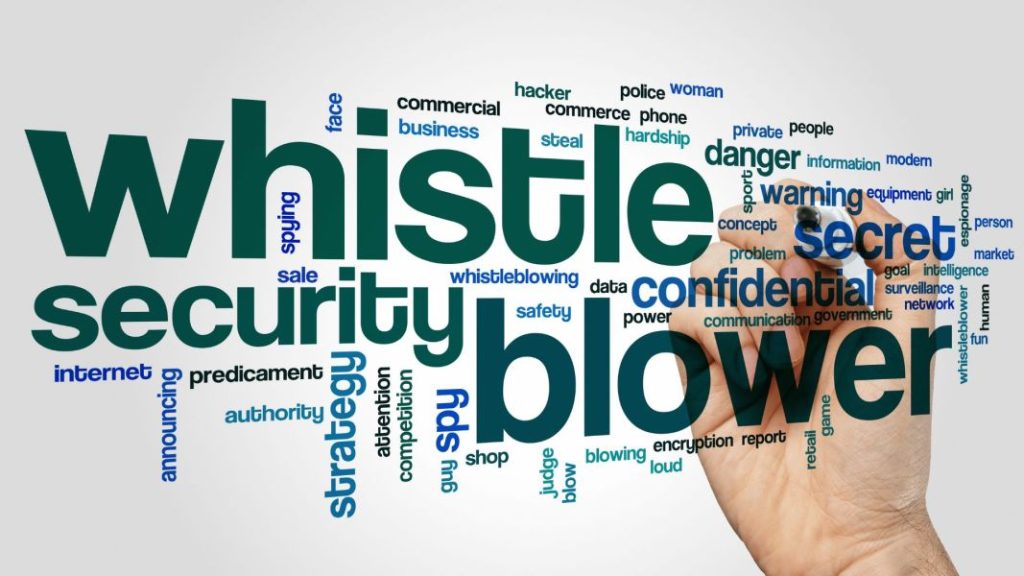Whistleblowers play an important role in society. But despite how important they are (and have been historically), there are plenty of misconceptions about what whistleblowers do and what legal protections they have.
If you’re considering coming forward with information about wrongdoing, make sure you know how to decipher fact from fiction.
Here are five common myths about whistleblowing – and the truth behind them.

Myth #1: Whistleblowers Are Just Disgruntled Employees Looking for Revenge
People often assume that whistleblowers are just bitter employees with a grudge, using their claims to get back at an employer. While some whistleblowers may be former employees, the reality is that most whistleblowers are motivated by a sense of justice, not revenge.
In many cases, whistleblowers are current employees who are deeply concerned about illegal or unethical activities taking place within their workplace. They may try to report issues internally first, but end up getting dismissed or ignored.
Even when a whistleblower benefits financially from a case, it does not change the fact that their disclosure helps fix something unethical that’s happening. Without whistleblowers, many cases of fraud, corruption, and workplace safety violations would go unchecked.
Myth #2: Whistleblowers Have No Legal Protection
One of the biggest fears people have about whistleblowing is retaliation. It’s true that speaking out can be risky, but the law provides protections to help shield whistleblowers from being fired, demoted, harassed, or otherwise punished.
There are multiple federal and state laws that protect whistleblowers, depending on the industry and type of misconduct being reported. For example:
- The Whistleblower Protection Act safeguards federal employees who report government fraud or abuse.
- The Sarbanes-Oxley Act protects employees in publicly traded companies who expose financial fraud.
- The Dodd-Frank Act allows whistleblowers to report securities violations and receive financial rewards for doing so.
If an employer takes action against a whistleblower in violation of these laws, they can face lawsuits, fines, and penalties. If you’re considering going this route, consulting with an attorney can help you understand your legal rights and protections before you take action.
Myth #3: Whistleblowing Always Means Going Public
Many people assume that whistleblowing automatically involves media attention or high-profile lawsuits. However, not all whistleblowers go public – many file their complaints confidentially through the appropriate legal channels.
If you report fraud, workplace safety violations, or other misconduct through the proper government agencies, your identity can often remain anonymous. For example, under the SEC Whistleblower Program, individuals can submit tips confidentially, and in some cases, even receive financial compensation without ever being publicly identified.
While some whistleblowers do choose to go public, many cases are handled behind the scenes, allowing individuals to come forward without exposing themselves to unnecessary risk.
Myth #4: Whistleblowing Doesn’t Make a Difference
Some people believe that whistleblowing isn’t worth it because corporations and government agencies are too powerful to hold accountable. While it’s true that fighting wrongdoing can be challenging, history has shown that whistleblowers have played a key role in uncovering some of the largest fraud and corruption cases in history.
One of the best tools for whistleblowers is The False Claims Act (FCA), which allows individuals to sue on behalf of the government in cases of fraud. As attorney Peter Katz explains, “The federal government does not have enough time or resources to go after everyone that defrauds the government. The FCA has a provision that allows private citizens to take legal action on behalf of the government. This is known as filing a qui tam lawsuit. In successful actions, citizens may receive a portion of the government’s damages, usually 15 percent to 30 percent of the entire award.”
This means that not only do whistleblowers help recover taxpayer money, but they can also receive financial rewards for their role in exposing fraud. Many FCA whistleblower cases have resulted in multi-million-dollar settlements, proving that whistleblowing can have a significant impact.
Myth #5: Whistleblowers Ruin Their Careers
Yes, some whistleblowers have faced harsh consequences for coming forward, including job loss, lawsuits, blacklisting, etc. However, legal protections exist to help minimize these risks, and many whistleblowers are able to continue their careers without major consequences.
If an employer retaliates against a whistleblower by firing, demoting, or harassing them, they can be sued for damages. Courts have awarded whistleblowers significant compensation for lost wages, emotional distress, and other forms of harm caused by retaliation.
Additionally, some whistleblowers continue working in their field without major setbacks. In some cases, they are even praised for their courage and move on to successful careers in advocacy, government, or other industries.
While retaliation is a risk, it is not a guaranteed outcome. With the right legal support, protections, and planning, many whistleblowers can report wrongdoing and still move forward with their lives.
Putting It All Together
If you’re considering whistleblowing, understanding the facts – and your rights – can help you make an informed decision. We recommend consulting with an attorney to figure out the best path forward prior to making any final decisions.

Founder Dinis Guarda
IntelligentHQ Your New Business Network.
IntelligentHQ is a Business network and an expert source for finance, capital markets and intelligence for thousands of global business professionals, startups, and companies.
We exist at the point of intersection between technology, social media, finance and innovation.
IntelligentHQ leverages innovation and scale of social digital technology, analytics, news, and distribution to create an unparalleled, full digital medium and social business networks spectrum.
IntelligentHQ is working hard, to become a trusted, and indispensable source of business news and analytics, within financial services and its associated supply chains and ecosystems












